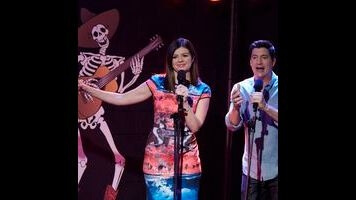Marry Me: “Win Me”

“Win Me” was an episode chock full of ideas and threads that never fully coalesced. But for the first time since the pilot, Marry Me felt like it had a purpose beyond “Look how funny these people can be.” Annie has been the most fleshed-out character since the pilot, but “Win Me” gave a sense of where she came from. As the two Kevins become more of an integral mechanism to the show, they are also becoming separate entities, their relationship reflected in their child’s own romantic life (they always say you marry your father and Annie got to decide between two). It makes Annie’s intense desire to get married a little more palatable, if only because it’s not so much a reflection on her gender, so much as a reflection on her dad, who always hoped that his parents would mistake his intense love for wedding magazines for a drug problem.
The father-daughter bride war is instigated by the appearance of Cousin Scooby, a concert cruise ship operator who is the life of the party (in stark contrast to Nat Faxon’s turn on Trophy Wife as Sad Steve. R.I.P. Trophy Wife and, by extension, Sad Steve). But Scooby’s inclusion is a complicated mechanism to get to the same conclusion that was established before Scooby even shows up: Dan Bucatinsky’s Kevin won’t compete with Annie when it comes to wedding-related matters. He’ll defer to his daughter. It’s a sweet father-daughter scene, and Bucatinsky and Casey Wilson have wonderful chemistry (“Who else can say they got in a bride war with their dad?” “I love that about us.”). But their conflict was set with the discussion of their shared love of royal bouquets and bird cages. Scooby is the classic MacGuffin. His attendance at their wedding is desired by both Annie and her dad, but he doesn’t really do anything. As evidenced by the the bouquet and the bird cages, Scooby could be really anything that they both want. As a Faxon fan, I wish Scooby would have done more than espouse the benefits of full-length pants (“It’s been so long since I’ve had fabric below my knees”), especially because of how fun the prospect of Spanish karaoke looked.
 Keep scrolling for more great stories.
Keep scrolling for more great stories.
